
-
 SFWJ / Medcana Announces Strategic Expansion Into Australia With Acquisition of Cannabis Import and Distribution Licenses
SFWJ / Medcana Announces Strategic Expansion Into Australia With Acquisition of Cannabis Import and Distribution Licenses
-
Tokyo leads gains in most Asian markets on trade deal hopes

-
 Two missing after deadly spring snowstorm wreaks havoc in the Alps
Two missing after deadly spring snowstorm wreaks havoc in the Alps
-
'War has taken everything': AFP reporter returns home to Khartoum

-
 US strikes on Yemen fuel port kill 38, Huthis say
US strikes on Yemen fuel port kill 38, Huthis say
-
Slegers targets Lyon scalp in pursuit of Arsenal European glory

-
 'Defend ourselves': Refugee girls in Kenya find strength in taekwondo
'Defend ourselves': Refugee girls in Kenya find strength in taekwondo
-
China's manufacturing backbone feels Trump trade war pinch

-
 Sri Lankans throng to Kandy for rare display of Buddhist relic
Sri Lankans throng to Kandy for rare display of Buddhist relic
-
Chinese vent anger at Trump's trade war with memes, mockery

-
 Heartbroken Brits abandon pets as living costs bite
Heartbroken Brits abandon pets as living costs bite
-
Mongolian LGBTQ youth fight for recognition through music, comedy

-
 Cash crunch leaves Syrians queueing for hours to collect salaries
Cash crunch leaves Syrians queueing for hours to collect salaries
-
Lyon left to regroup for Champions League bid after painful European exit

-
 Unravelling Real Madrid face Athletic Bilbao Liga test
Unravelling Real Madrid face Athletic Bilbao Liga test
-
Napoli disturbing buoyant Inter's peace in Serie A Easter bonanza

-
 Disappointed Dortmund chase consistency with Europe at stake
Disappointed Dortmund chase consistency with Europe at stake
-
Asian markets mixed as traders track tariff talks

-
 Yan and Buhai share lead at LA Championship
Yan and Buhai share lead at LA Championship
-
Under fire at debate, Canada PM Carney tries to focus on Trump

-
 Liverpool poised for Premier League coronation, Leicester, Ipswich for relegation
Liverpool poised for Premier League coronation, Leicester, Ipswich for relegation
-
India's elephant warning system tackles deadly conflict

-
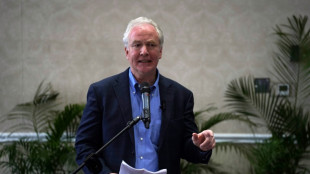 US senator meets wrongfully deported Salvadoran migrant
US senator meets wrongfully deported Salvadoran migrant
-
Gustavo Dudamel: the superstar conductor building bridges to pop

-
 Japan rice prices soar as core inflation accelerates
Japan rice prices soar as core inflation accelerates
-
US unveils new port fees for Chinese-linked ships
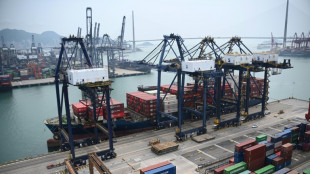
-
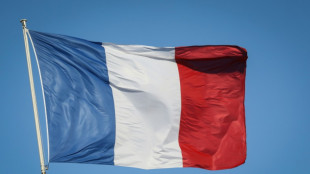 First US 'refugee scientists' to arrive in France in weeks: university
First US 'refugee scientists' to arrive in France in weeks: university
-
Members of UK Jewish group launch broadside on Gaza war

-
 One million Haitian children face 'critical' food shortage: UN
One million Haitian children face 'critical' food shortage: UN
-
Spring snow storm wreaks deadly havoc in the Alps

-
 Man Utd buy time to make miserable season 'special', says Amorim
Man Utd buy time to make miserable season 'special', says Amorim
-
Netflix earnings top forecasts despite economic turmoil
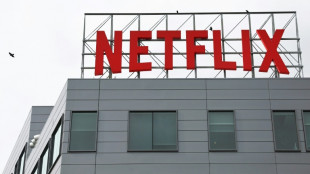
-
 Thomas three clear at RBC Heritage after sizzling 61
Thomas three clear at RBC Heritage after sizzling 61
-
Man Utd beat Lyon in Europa League epic, Spurs and Athletic Bilbao reach semis

-
 Frankfurt's Goetze sidelined with leg injury
Frankfurt's Goetze sidelined with leg injury
-
Spurs players 'never lost belief', says Postecoglou

-
 Man Utd stun Lyon in nine-goal Europa League classic to reach semis
Man Utd stun Lyon in nine-goal Europa League classic to reach semis
-
Netflix earnings in first quarter of 2025 top forecasts
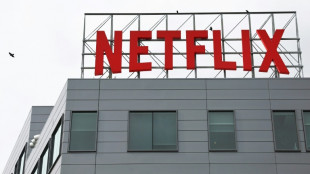
-
 Trump says US 'talking' to China on tariffs
Trump says US 'talking' to China on tariffs
-
Salvadoran soldiers stop US senator near prison holding expelled migrant
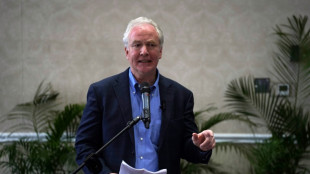
-
 Solanke penalty sends Spurs to Europa League semis
Solanke penalty sends Spurs to Europa League semis
-
CAF crackdown after trouble in African club matches

-
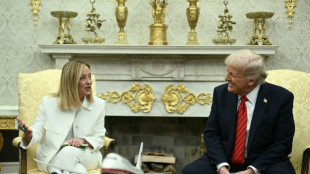 Trump talks up EU tariff deal as Italy's Meloni visits
Trump talks up EU tariff deal as Italy's Meloni visits
-
Trump insists he could fire independent Fed Chair Powell
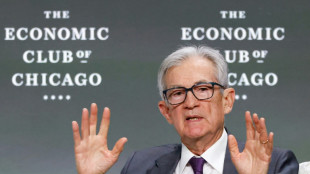
-
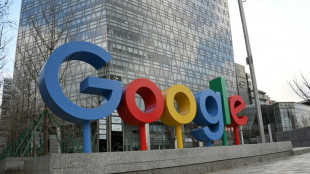 Google has illegal monopoly in ad tech, US judge rules
Google has illegal monopoly in ad tech, US judge rules
-
Trump softens on Zelensky, says mineral deal coming 'soon'
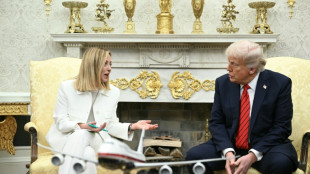
-
 Jacks helps Mumbai beat Hyderabad in IPL
Jacks helps Mumbai beat Hyderabad in IPL
-
Countries must 'make the best' of new multipolar world: IMF chief
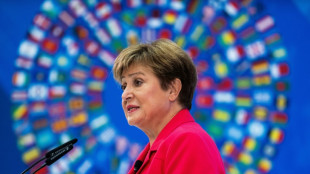
-
 Heavy spring snow storm wreaks havoc in the Alps
Heavy spring snow storm wreaks havoc in the Alps
-
US judge rules against Google in online ad tech antitrust case
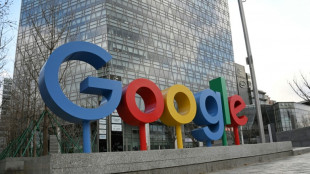

Trump tariffs weigh on Germany as institutes cut forecasts
Leading economic institutes Thursday slashed their 2025 growth forecast for Germany to near stagnation, warning Europe's struggling top economy will face extra pain from US President Donald Trump's tariff blitz.
The six think-tanks, in their latest joint forecast, now predict GDP growth of just 0.1 percent for 2025, down from the 0.8 percent expansion they forecast in September.
For 2026 they forecast growth of 1.3 percent, unchanged from September.
"The geopolitical tensions and the protectionist trade policy of the USA are exacerbating the already tense economic situation in Germany," said Torsten Schmidt, head of research at the RWI-Leibniz Institute for Economic Research.
The downgrade comes the day after the French and Italian governments cut their growth forecasts for the year, citing new barriers to trade, while Spain warned that its growth would suffer, without giving a figure.
Trump's tariffs on aluminium, steel and vehicle imports that came into effect in March and April would likely reduce Germany's economic growth by 0.1 percentage points each for 2025 and 2026, the institutes calculated.
Additional "reciprocal" tariffs announced by the United States on April 2 could double the hit, the institutes said, though they warned that it was difficult to quantify the effect.
Those tariffs were paused for most countries on Wednesday.
The United States was Germany's top trading partner last year and a major market for its exports, ranging from cars to machinery and chemicals.
Adding to its problems, Germany faces a range of deep-seated structural issues including a shortage of skilled workers, increased competition from China and stifling taxes and bureaucracy, the institutes warned.
"These cannot be solved by simply increasing government spending, and make reforms to boost potential output all the more urgent," they said in a statement.
The German government's latest official forecast, released in January, estimates the economy will grow by 0.3 percent for the year. It will present a new forecast on April 24.
- Grim reading for Merz -
The figures make grim reading for Germany's chancellor-in-waiting, Friedrich Merz, who on Wednesday presented a coalition agreement between his centre-right CDU/CSU and the leftist SPD, paving the way for him to take power next month.
A key challenge for the incoming government is reviving Germany's economy, which has shrunk for the past two years due to a manufacturing slump and weak demand in key markets, as well as rising competition from China.
"China is competing with us on the global markets for products where we believed -- for many, many decades -- we were the only ones who could make them so well," said Timo Wollmershaeuser, head of the Ifo institute, one of the think-tanks which produce the forecasts.
Even before taking office, Merz has taken some steps, including by pushing through parliament changes to Germany's so-called "debt brake", which restricts government borrowing and has been criticised for holding back much-needed investment.
The move allows potentially unlimited government borrowing for defence. He also won parliamentary approval for a 500-billion-euro ($552-billion) fund to spend on renovating Germany's creaking infrastructure in the coming years.
Many economists hope the additional investment will help get Germany's economy back on its feet, and the think-tanks calculated it would boost growth by 0.5 percentage points over the next year, assuming an extra 24 billion euros in government spending.
But the coalition's plans also faced criticism, with economists saying the government was dodging the task of tough structural reforms that be costly in the short term but boost growth over the longer term.
"The coalition agreement between the CDU/CSU and SPD is a compromise that largely maintains the status quo," said Marcel Fratzscher, head of the German Economic Institute for Economic Research (DIW).
"The CDU/CSU and SPD have not yet recognised the urgency of the current crisis situation and remain unambitious in many areas."
H.E.Young--AMWN